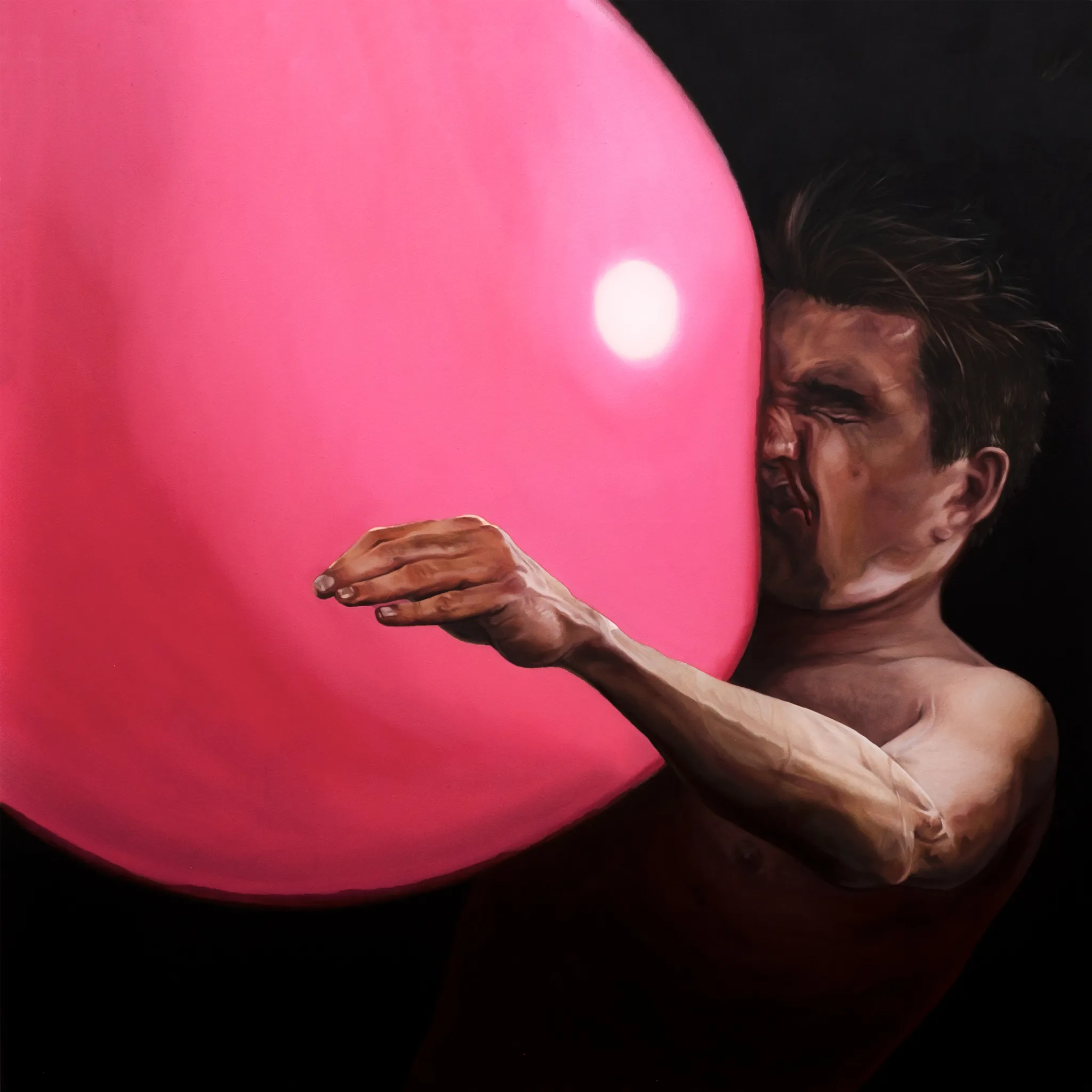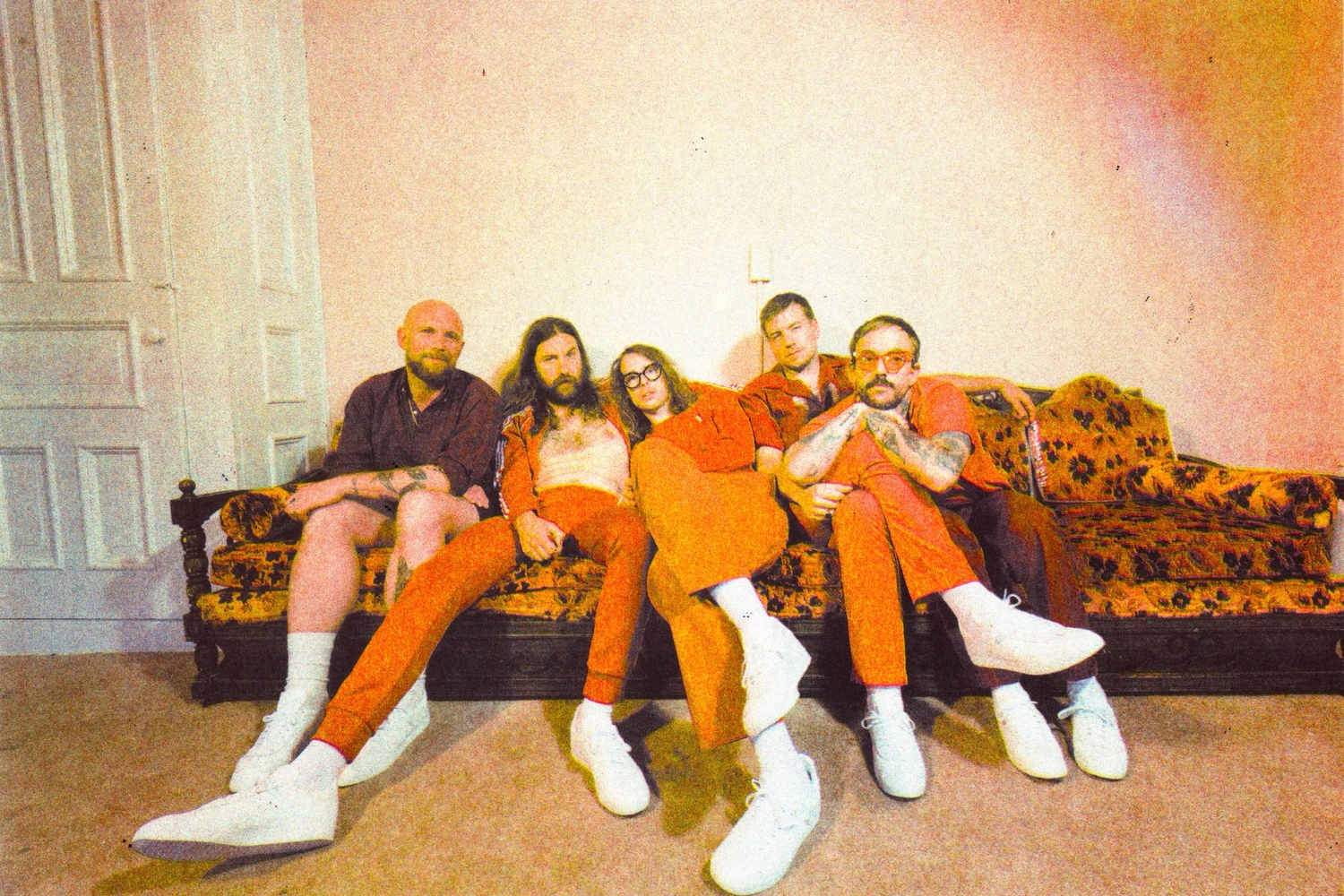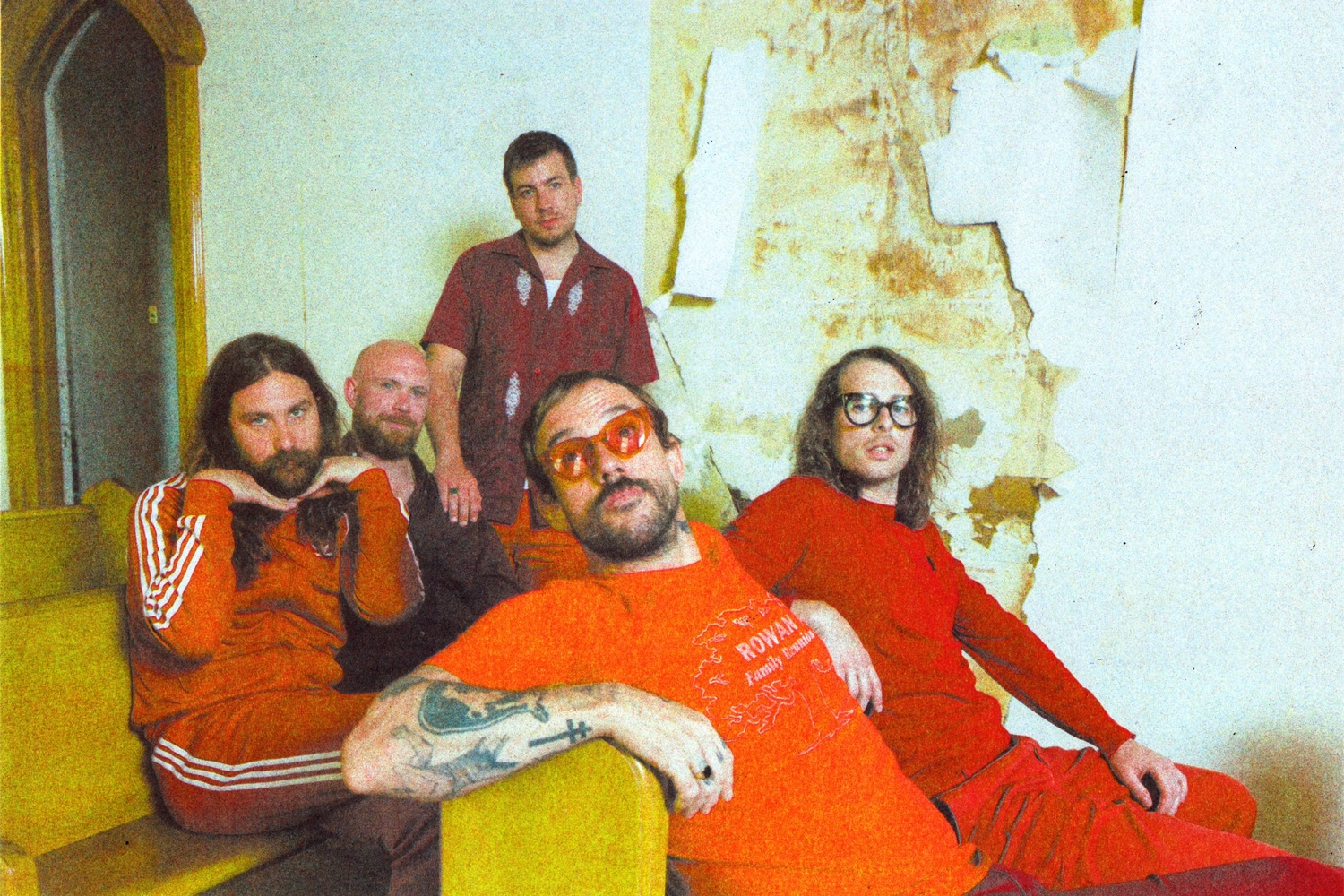
Interview Empire State of Mind: IDLES
With fourth album ‘CRAWLER’ making sonic and lyrical leaps forward, we join IDLES in New York to watch its visceral message unfurl firsthand:
It’s Saturday night in New York City and Joe Talbot has Manhattan in the palm of his hand. The audience naturally gravitates towards the IDLES vocalist, like magnets to his energy on stage. Joe punches the air with his right arm, the crowd surges in that direction; he takes a stride to the left, and there the crowd flows. The synergy is like that of a puppet and their master; a conductor with their baton; a snake charmer.
“There’s this thing about how certain places in the world make you feel like home,” Joe says, addressing the frenetic Terminal 5 crowd. “This is one of them. I fucking love playing here because of you. Thank you. You make it safe to play new songs. Hopefully we make you feel as good as you make us feel.”
IDLES are a week into their North American tour in support of their fourth album “CRAWLER’, with just under a month left on the road. These are their first live shows since the pandemic started, a chance to road-test new material from their fourth studio effort to their fans ahead of its release. From the reception tracks such as the ominous “Car Crash’ and soulful “The Beachland Ballroom’ receive, you’d think they were beloved IDLES deep cuts and not new material.
“They get it, they get the message, universally,” the frontman tells DIY from the Terminal 5 rooftop. There’s been an inclement weather warning with thunderstorms promised for later in the evening - typical of the Brits to bring over the rain, eh? But for now, the skies are clear and cool. “The audience is a lot more mixed and diverse - races, ages, genders. It’s fucking beautiful to see.”
It is, indeed, a sight to behold. A circle pit is incited before the first song is even played. A young man wearing a bright orange “Cheeto’ shirt crowd surfs five times. Throughout the hour-and-a-half set, the mosh never calms - it is always seething with energy, brimming with a restless excitement. Bodies and limbs and torsos are flung together willingly, grins exchanged at the crescendo of each song. The band - with Joe at their helm - are receptive to this energy; the more unruly the audience is, the more frenzied IDLES are on stage. They feed off one another, audience and band; a symbiosis of mutual chaos.
But IDLES are no strangers to violence. Joe has always been candid about his struggles with addiction, his problems with mental health and anxiety, and his own image, but on 'CRAWLER', this introspection is even more vivid, more visceral. The record recounts Joe's difficult 15-year battle with substance abuse in lucid detail, embedded with descriptions about a narrow escape from death in a car crash and a memory involving him begging for his late mother to quit drinking. "The swell of heaven on my dashboard / I can see my spinal cord swing high," he sings.
Lyrically, IDLES are at their most poignant fourth time around, revelling in the quiet, graphic imagery of past and current suffering. IDLES have built a reputation for their politically-aware lyrics and social messaging, but on 'CRAWLER', the band have chosen to delve deeper into self-reflection, addressing darker themes inspired by the personal. It's both time and distance - from crowds, from touring, from the world - that afforded lyricist Joe to write about these topics, exploring new soundscapes and methods of songwriting that weren't previously available.
"It's very liberating to not have the live [arena] be necessary for the album," explains guitarist Mark Bowen, who also co-produced the record. "'Ultra Mono' needed the shows to happen for the context of the work, and now we know we can write without that. 'CRAWLER' is a standalone album and it exists purely on its own. I think that, creatively, really inspired us and pushed us out of our comfort zones."
"We've got a different relationship with 'Ultra Mono' now. With 'CRAWLER', we wrote it very much in reflection," Joe adds. "We had time, and poise, to be able to write very different music to what we were used to. It was all about introspection. We were asking each other about who we wanna be. How do we want to be perceived as a band? Collectively, we become a caricature of ourselves, but we built that caricature as a band. We did that with 'Ultra Mono'. IDLES is dead, long live 'CRAWLER'. And that's everything we've learned from our mistakes from that point, and now we get to, with grace, start something new. And something challenging."
The "mistakes" that Joe refers to are written all over 'CRAWLER'. In 'Car Crash', the singer recounts a moment of narrowly avoiding death, the sentiment of feeling all-powerful and invincible until everything changes at the very last nanosecond. "It was a huge turning point in my life, but also not," he explains. "I should've learnt more from that incident. I didn't die, going 60 miles an hour, crashing into a lamppost. If I'd had a "eureka' moment then, I wouldn't have struggled with addiction and fucked up so many of my relationships. That 'eureka' moment is very intelligent and forthright. I wasn't."
But is there not a sense of a retrospective 'eureka' moment from looking back on past mistakes in later life, learning from them and moving on as a better, changed person? After all, that anxious sentiment of self-awareness is, essentially, the crux of 'CRAWLER'...
"Fuck yeah," says Joe. "Songwriting helps. So does therapy. Therapy helped me compartmentalise my traumas, and to learn self-acceptance. Not to take away my own accountability, but I forgave myself [for those mistakes], while also maintaining a sense of responsibility for the things I did. It's all I can do, really. To move forward. Revisiting a lot of it just makes me grateful to still be here."
This more considered approach to songwriting is a stark departure to how "Ultra Mono' was conceived. For the band's third album, Joe would write and record his vocal parts in the booth as they came to him, imbuing a sense of raw urgency in the record. The lyrics themselves, however, remain a point of contention. IDLES received criticism for the quality of certain phrases: "Clack clack clack-a-clang-clang / That's the sound of a gun going bang bang" gained some notoriety, while some just missed the mark, despite their good intentions. "So I raise my pink fist and say / 'Black is beautiful'," went 'Grounds'; when considered alongside - or against - the white gaze, the lyric could be said to ring uncomfortably.
It's the kind of criticism - at some points valid, at others not - that tends to follow any band who have become too popular for their own good, as the baying detractors try to push them into making mistakes, waiting around to pounce. If it's not accusations that the band have appropriated working class culture, it's the complaint that their lyrics are there for merely box-ticking purposes.
It's tempting to wonder if IDLES' careful and considered approach to writing 'CRAWLER' was purposely done in order to avoid attracting the backlash that 'Ultra Mono' did. After all, the distance that Joe spoke of previously could also apply to the literal act of his own songwriting. Did the band want to "fix' the mistakes of 'Ultra Mono'? He shakes his head.
"I think I've been criticised rightfully," the frontman says firmly. "If you're an artist and you write lyrics, and you get questions and get criticised, you can't open a conversation and then complain about the reaction. It's just how it is. I've learned a lot from my critics. I've become a better artist than the people who didn't want me to become a better artist. I've always understood my privilege, I've always understood my class, I've never tried to hide that. But my messaging, my lyrics, can sometimes be confusing. Because you know what? It's not easy. I'm trying to convey what you want in a way that is understood by everyone. And nuance is lost when you're writing very short, sharp, rock'n'roll music. My directness sometimes misses the mark. It's my fault and nobody else's. If someone reads it and has an opinion on it, I choose to either listen to it or I don't. But I can't write a message and then complain that it was heard. It's just what it is. I just need to be better at what I do."
IDLES' mantra, from their inception, has always been to embrace vulnerability and empathy. It's the core of the band, and a motif that they try to get their listeners and fans to understand. Surely music fans should afford IDLES that very same empathy - and forgiving nature - that they are shown?
"Also, I wasn't: in a good place, writing ['Ultra Mono']," Joe adds, quietly. "I was in a difficult place in my life. It was dark. I was like a lot of men, big-chested and trying to fight my way [out of it] instead of accepting my accountability, and fixing my problems, and moving forward. But luckily I have a job now that lets me focus and release that energy into it.
"It's a divisive, offensive world. But everyone wants to be loved, and everyone wants to love. If you're honest about that, then you'll get it. The loneliest part of my life was when I wasn't allowing myself to see the support network around me. You're never truly alone. We try to make our audience never feel alone. That's all we've ever wanted."
And boy, do the audience in New York City feel it tonight.
'CRAWLER' is out now via Partisan.
As featured in the November 2021 issue of DIY, out now. Scroll down to get your copy.
Records, etc at


IDLES - Ultra Mono (Vinyl LP - black)

IDLES - Ultra Mono (Vinyl LP - black)

IDLES - TANGK (Vinyl LP - pink)

IDLES - TANGK (Vinyl LP - yellow)

IDLES - TANGK (Vinyl LP - orange)

IDLES - TANGK (Vinyl LP - black)
As featured in the November 2021 issue of DIY, out now.
Read More

Flow Festival Helsinki adds Aurora, Halsey, Janelle Monáe and more to 2024 lineup
They'll join the likes of Pulp, Fred again.., The Smile and Jessie Ware in Finland this August.
23rd April 2024, 9:00am

IDLES share video for ‘TANGK’ track ‘POP POP POP’
The band will headline Glasto's Other Stage in June.
18th April 2024, 1:48pm

Sophie Ellis Bextor, Heartworms, Personal Trainer and more confirmed for Truck 2024
Jamie T, Wet Leg, and The Streets are set to headline this year's Oxfordshire knees up.
7th March 2024, 6:05pm

IDLES riff off Coldplay’s ‘Yellow’ in new video for ‘TANGK’ cut ‘Grace’
The idea for their reimagined version of Coldplay's iconic clip apparently came to Joe Talbot in a dream.
15th February 2024, 1:40pm
With Bob Vylan, St Vincent, girl in red, Lizzy McAlpine and more.

